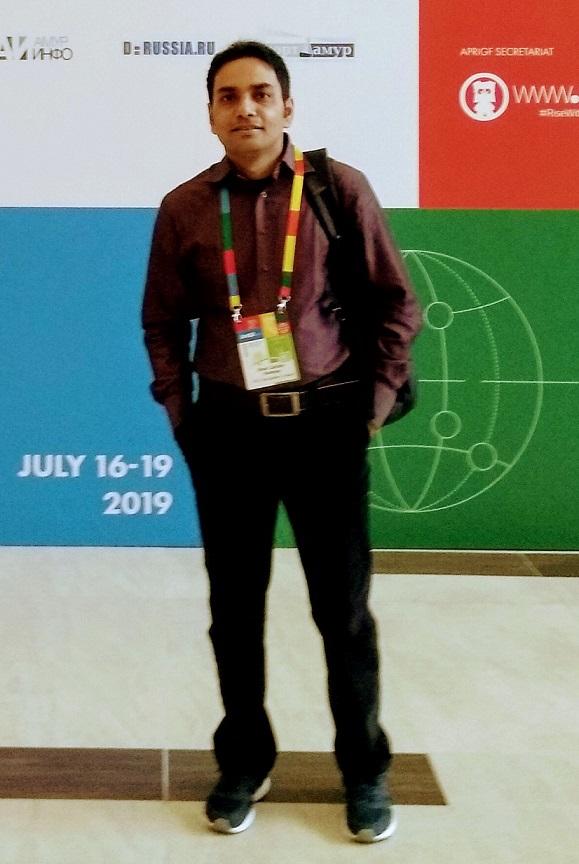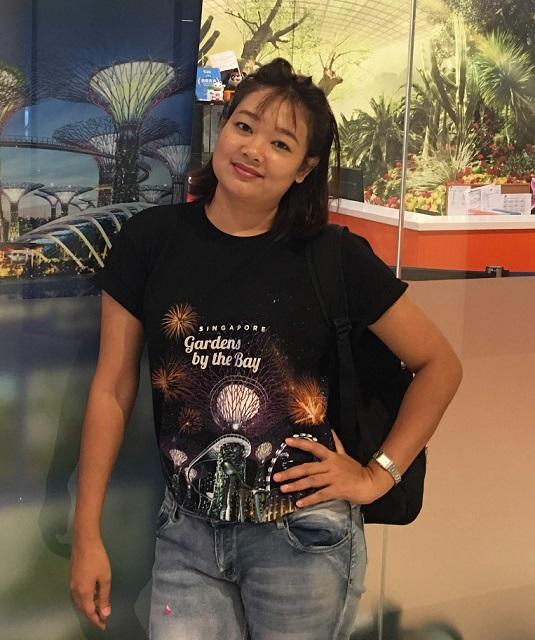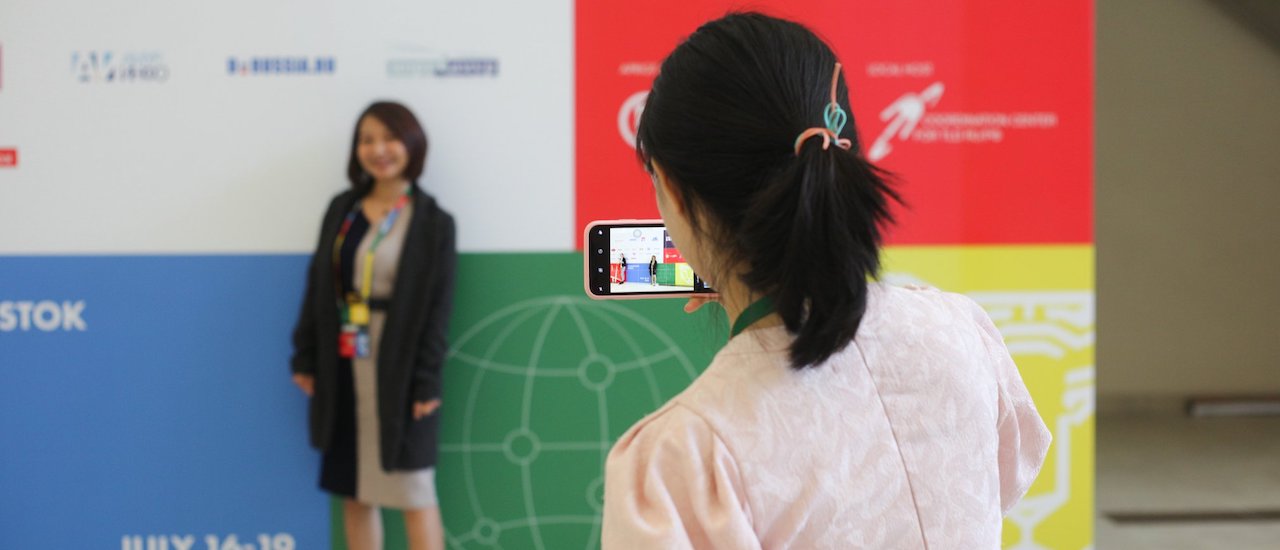The Internet Society, APNIC, and Coordination Center for TLD .RU sponsored 20 fellows to the 10th Asia Pacific Regional Internet Governance Forum (APrIGF 2019) held in Vladivostok, Russia in July. Let’s meet three fellows from Bangladesh, Myanmar, and Singapore as they share their experience at APrIGF 2019, as well as their interests and future aspirations.
Shah Zahidur Rahman, Technology Business Consultant, Bangladesh

I completed my Bachelor’s degree in Computer Science and Engineering from the American International University-Bangladesh and have many technical course certifications. Currently, I am a technology business consultant for small- and medium-sized enterprises and startup companies. I have also been mentoring youths in the Youth4IG coalition to become further engaged in Internet Governance issues. I have been an active member of the Internet Society Bangladesh Chapter since 2014. I am also a member of the Bangladesh School of Internet Governance Programme Committee and Fellowship Committee, the Bangladesh Internet Governance Forum, and the ICANN Non-Commercial Stakeholder Group and Non-Commercial Users Constituency. Additionally, I am a former fellow of IETF, APSIG and APAN.
This year at APrIGF 2019, my main interest was in one of the six subthemes on Emerging Technologies and Society, and here are some of the key things I learned from participating in the sessions. First of all, without good governance, technology innovation can harm individuals and societies. Secondly, a multistakeholder approach is important for good governance. Thirdly, consumers are one of the stakeholder groups: they have a say in the governance of the Internet and can make demands, such as for greater transparency and accountability, or for Internet of Things security. Security is not just a technical issue that the technical community can address alone. There are many non-technical issues that can only be resolved with the cooperation of multiple stakeholders. Moreover, emerging technologies such as machine learning and Artificial Intelligence are developing at a rapid pace. We need to consider the ethics of these technologies and ensure that algorithms are free from biases for the global good. I am pleased to be a member of the drafting committee for the APrIGF 2019 Synthesis Document, which is expected to be published in October.
Sein Ma Ma, Network Engineer, Myanmar

I hold a Bachelor of Engineering in ICT and am currently working with an Internet service provider in Yangon. My interests lie in the areas of Internet Governance, digital inclusion, and community development, and I am eager to broaden my involvement in the Internet Governance ecosystem. I am involved in restarting the Internet Society Chapter in Myanmar, and I have been engaging with representatives from the Internet Society, APNIC, ICANN and Internet stakeholders in Myanmar. I am an alumni of the APNIC44, APAN45, APIGA2018, APSIG2019, and APAN48 fellowship program, and in 2018, I was a part of a committee to evaluate the fellowship applications for APNIC48. I am also a member of Youth4IG: Asia Pacific’s first and only youth coalition that engages in Internet governance.
The Asia-Pacific region is the largest in the world and it is indeed very diverse. Yet, the Internet binds us together in that diversity. The APrIGF that united almost 300 stakeholders from around 40 countries, with over 100 speakers taking part in the three-day event, has enriched my knowledge about multistakeholderism in Internet Governance. Even the fellows were from different stakeholder groups – academia, civil society, government, the private sector, and the technical community – and not just from different countries. To quote Rajnesh Singh from the Internet Society, “let’s all work together to continue keeping the Internet safe and secure, in a space that can be used for the benefit of humankind.”
Sebastian Hoe Wee Kiat, Student, Singapore

I studied at the Singapore University of Social Sciences. In Paris last year, I served as a Youth@IGF fellow. I also served as a Harvard Project for Asian and International Relations Scholar in the Harvard Asia Conference in Kazakhstan, and I was recently selected as the Queen’s Commonwealth Trust Scholar for the upcoming London Summit. My interests include championing mental health and persons with disabilities, social justice, law, Internet governance, and the United Nations Sustainable Development Goals, and I aspire to serve my country and community in the social-legal sector. I also hope to improve my Bahasa Melayu (Malay language).
As a social work practitioner, I was thrilled to attend the APrIGF workshop on Child-Led Research on Promoting Safer Internet. Working together with instructors from the Guangzhou Growth Sky Social Service Centre, 22 brilliant young researchers shared their findings on promoting safer Internet from children’s perspectives in eight Chinese cities. I congratulated the young delegates on their successful research presentation and gave them encouragement and feedback on improving their research. The next steps would be reaching out to more children in the Asia-Pacific region, and including children and young persons’ voice in our Internet governance work. Young people ought to be empowered, heard, and included, so that they can thrive and succeed in being positive agents of change in our communities.
I participated in a number of other sessions to discuss legislations related to Internet Governance, such as the Protection from Online Falsehoods and Manipulation Bill in Singapore, and the need for youth empowerment and participation in Internet Governance. In Singapore, we have the SG Youth Action Plan to envision the future of Singapore in 2025. Youths like myself can contribute to the action plan, and Internet Governance is one area to be included in the youth action plan. Youth have an important role to play in enhancing our Internet Governance landscape, and I am delighted to serve as a member of the drafting committee for the APrIGF 2019 Synthesis Document. I hope my experience will encourage young Singaporeans and youth in the region to contribute to our united quest for a more open, safer, and inclusive Internet.
Thank you to all of the APrIGF 2019 Fellows for taking time to share your thoughts! Because of space constraints, we weren’t able to publish all of your submissions, but we look forward to seeing how your work continues to help shape the Internet’s future.
